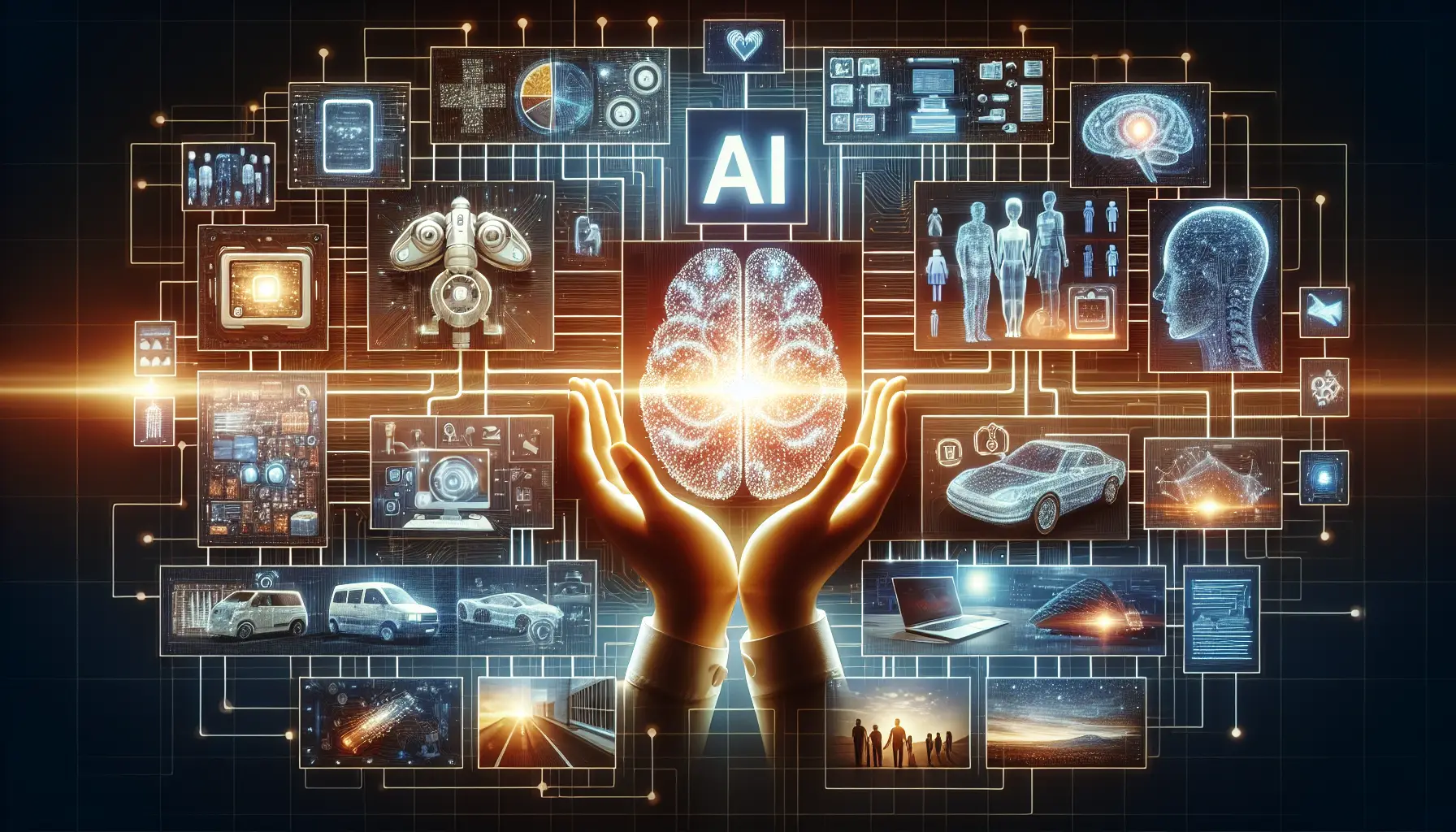Imagine a world where your coffee brews itself just as you wake up, your car drives you to work while you catch up on your favorite show, and your home’s temperature adjusts automatically to your comfort level—all without a finger lifted. This isn’t a scene from a futuristic movie; this is the world Artificial Intelligence (AI) is crafting today. But what is AI, exactly? Let’s dive into the AI basics to uncover the magic behind these modern marvels.
The Essence of AI Explained
At its core, Artificial Intelligence is the branch of computer science that aims to answer Turing’s question: “Can machines think?” AI enables machines to learn from experience, adjust to new inputs, and perform human-like tasks. Most of today’s AI examples stem from machine learning and deep learning, which are fueled by massive amounts of data and sophisticated algorithms that allow these machines to learn how to perform tasks.
The Birth and Evolution of AI
The journey of AI began in the mid-20th century, rooted in the question posed by Alan Turing. Since then, what started as a question has exploded into a field of study and a practical tool. From its rudimentary beginnings in Turing’s theoretical framework, AI has evolved into a robust toolset that impacts fields ranging from healthcare to finance, and beyond.
In healthcare, AI-powered systems analyze records and data points, making predictive suggestions that help doctors diagnose diseases early. In finance, algorithms make split-second trading decisions that can move markets. Each of these examples hinges on the fundamental AI basics: data analysis, pattern recognition, and automated response generation.
Real-World Applications Shaping Today
To truly grasp ‘what is AI?’, look around you. AI is embedded in everyday life. When you speak to Alexa or Siri, you interact with AI. When Netflix suggests a movie you might like, that’s AI in action. Even spam filters that keep unwanted emails out of your inbox are a form of AI. Each of these technologies uses data and past interactions to make predictions and decisions, mimicking human intelligence at a scalable, efficient rate.
How AI Works: A Closer Look
AI functions through layers of data, algorithms, and continuous learning. The process starts with data—lots of it—from which AI systems learn patterns and important features. This learning phase involves algorithms that adjust themselves as more data flows in, a method known as machine learning. Deep learning, a subset of machine learning, uses a complex structure of algorithms modeled on the human brain called artificial neural networks. It’s these structures that enable a voice assistant to recognize your speech or a self-driving car to distinguish between a pedestrian and a lamppost.
The Ethical Dimension
As AI becomes more integrated into daily life, ethical questions bubble to the surface. Issues of privacy, autonomy, and unintended consequences are at the heart of current debates. As AI systems learn predominantly from the data fed into them, what happens when this data is biased? This can lead to AI systems perpetuating existing biases, making it crucial to approach AI development responsibly.
Preparing for an AI-Powered Future
Understanding AI basics is more than an academic exercise; it’s a necessary step towards literacy in a technology that will define the future. Whether you’re a student, a professional, or just a curious mind, grasping the fundamentals of AI opens up a world of possibilities. By demystifying AI, you equip yourself with the knowledge to navigate and harness one of the most significant technological shifts of our time.
Embracing the AI Revolution
From Alan Turing’s initial question to today’s sophisticated algorithms, AI has traveled a long path. This journey, filled with incredible advancements and complex challenges, is just the beginning. As AI continues to evolve, so too will its impact on the way we live, work, and interact with the world. So, welcome to the age of Artificial Intelligence! Stay curious, stay informed, and remember that the future isn’t just happening to us. We are shaping it with every question we ask and every challenge we tackle. Ready to dive deeper into how AI can change your world? Keep exploring, keep learning, and let AI be your guide to the future.
